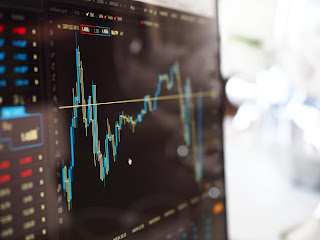You can be forgiven for pointing out that most of the market experts were ...... well, just plain wrong.
Thursday 22nd June 2017
You can be forgiven for pointing out that most of the market
experts were ...... well, just plain wrong.
ref :- "Remember the Stunning Dollar Rally in 2014 ? It's the
Euro's Turn" , Bloomberg Markets 21/6/17
Forgive us for referring to a Bloomberg piece that's a day
or two old. We returned too late in the day to make anything of it yesterday
but can't turn down the opportunity to offer another example of how, when it
comes to markets, nobody actually KNOWS anything.
You might happen to agree entirely with a beautifully-argued
assumption from a top financial guru about the future direction for a
particular market instrument .... so much so in fact that it would seem
difficult to imagine any other outcome.That's exactly the time to remember that
what you're subscribing to is still just an opinion, and definitely not written
in stone. Even the recent past is littered with examples of how perfectly
logical prognostications offered by a majority of market players have turned to
dust, and the failure to learn this particular history lesson early
-- that things are rarely as straightforward as they seem --
can be extremely expensive.
With the benefit of hindsight, wounded investors reassessing their
decisions are normally able to identify the previously unforeseeable factors
that have proved so costly to them. More than any other field in recent times,
these factors have revolved around politics, and the economic ramifications of
political events. If one is tempted to feel sympathy for investors who built
their market positions on the views of political forecasters who were well wide
of the mark, then one must also absorb the fact that in the modern era, NOTHING
should be taken for granted.
Take the case of the US Dollar, and in particular the path of the
world's most-traded currency pairing, EUR / USD . It was politics, in the form
of the Trump election win , that caused a majority of analysts to believe that
the record-breaking strength in the Dollar that had already been the story for
the past three years was set to continue. The Trump reflation trade argued for
stronger growth, stronger inflation and therefore higher rates. The win may
have been unexpected, but the logical conclusion to draw from Mr Trump's intended
policies was indeed one of dollar strength and EUR / USD duly fell from over
$1.10 to under $1.04.
Sadly for those pundits climbing aboard the Dollar bandwagon in
their turn-of-the-year reports, the hidden political twists kept on coming. In
extraordinary fashion, the President has become embroiled in a number of
potential scandals and ill-advised spats with all-and-sundry that have wrecked
confidence in his ability to enact anything like the measures he'd promised.
Cue : an unloading of disappointed dollar-long positions.
On top of that, as things stutter both in Washington and for the
economy, the outlook in Europe has changed quite dramatically. A region with a
negative deposit rate and a central bank still in the process of Quantitative
Easing may not seem like one shouting that you should buy its currency, but an
unexpectedly strong economic performance means that the talk -- and
therefore the sentiment -- is all about how to end QE. If you throw
in the fact that Europe has overcome the political risks that it faced at the
start of the year (in stark contrast to the US), it's plain to see why those
New Year calls for an ever lower EUR / USD rate were cast aside.
In the last quarter of 2016, EUR / USD fell 6.9% as the market got
itself over-excited about what Mr Trump might do for the US economy. Arguably,
it's not so surprising that a continuation of the move was the prevailing
wisdom but in the event EUR / USD has risen 5.9% this year to just below $1.12.
The Euro has fared even better against the Jap Yen, and the suggestion in some
quarters is that the shared currency might emulate the dollar's multi-year
rally that began in 2014.
Careful now ..... that's a very big call indeed and probably
one that's guilty of making the same kind of assumptions that we were warning
about earlier. It's perfectly possible that after a long period of aggressive
monetary easing, the ECB switches to a course of policy
"normalization", which could in turn open the door to a prolonged
period of Euro-buying, but we're not there yet. Such a call assumes a pretty
pessimistic view about the US both economically and politically, which may or
may not chime with your way of thinking. Even if it does, just because Europe's
political path has run smoothly so far this year, there's no guarantee that it
won't face problems in the future (Greece ? Italy ?).
Still, it makes sense ..... but then again so did the Long Dollar
story back on Jan 1st. Every active trader not relying on computer-generated
signals will ultimately have to make some kind of trading decision. He or she
will hear lots of different views, and inevitably will attach more credibility
to some than others. But to return to where we started, we all have to remember
that when all's said and done, it's just a view ...... nobody actually KNOWS
anything.



No comments